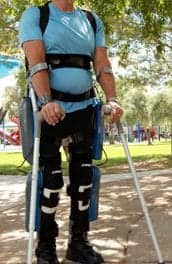Denver-based PhysioNetics has received $815,000 grant from the National Institutes of Health, National Institute of Child Health and Human Development. The company says it will use the award to complete design refinements and commercialization activities for its low-cost upper-extremity prosthetic interface, also known as a “socket.”
Ongoing tests with amputees have demonstrated the technical and economic feasibility of creating a comfortable low-cost socket that can be easily adjusted to accommodate residual limb variations in shape and volume.
Dubbed the Johnson Veatch Interface (JVI), the patent-pending socket is significantly less expensive than other available prosthetic sockets. The interface makes possible new prostheses that are affordable for several-hundred thousand upper-extremity amputees worldwide who live in impoverished regions or lack financial means. Standard existing prostheses cost thousands of dollars, making them unavailable to economically disadvantaged amputees.
“The cost of purchasing, repairing and maintaining prostheses, combined with a lack of clinical infrastructure in some countries precludes a large percentage of the world’s amputee population from accessing modern prosthetic technologies,” said PhysioNetics’ Principal Investigator and Chief Technology Officer Alwyn P. Johnson. “Recent crises around the world continue to highlight the need for prosthetic devices that are affordable and field-deployable. By collaborating with funding agencies and humanitarian groups, we will provide disadvantaged amputees new prosthetic options that enable them to live more independently while improving their quality of life,” Johnson said.
Visit www.physionetics.org for more information.
(Source: Press Release)




